The BEST episodes of TED Talks season 2015
Every episode of TED Talks season 2015, ranked from best to worst by thousands of votes from fans of the show. The best episodes of TED Talks season 2015!
TED is a nonprofit devoted to Ideas Worth Spreading. It started out (in 1984) as a conference bringing together people from three worlds: Technology, Entertainment, Design. TEDTalks began as a simple attempt to share what happens at TED with the world. Under the moniker "ideas worth spreading," talks were released online. They rapidly attracted a global audience in the millions. Indeed, the reaction was so enthusiastic that the entire TED website has been reengineered around TEDTalks, with the goal of giving everyone on-demand access to the world's most inspiring voices. [TED-Ed and TEDx are separate TVDB series and should NOT be listed here. Episode ordering and dates are sourced from YouTube.]
#1 - Mac Stone: Stunning photos of the endangered Everglades
Season 2015 - Episode 166 - Aired 9/30/2015
For centuries, people have viewed swamps and wetlands as obstacles to avoid. But for photographer Mac Stone, who documents the stories of wildlife in Florida's Everglades, the swamp isn't a hindrance — it's a national treasure. Through his stunning photographs, Stone shines a new light on a neglected, ancient and important wilderness. His message: get out and experience it for yourself. "Just do it — put your feet in the water," he says. "The swamp will change you, I promise."
Watch Now:Amazon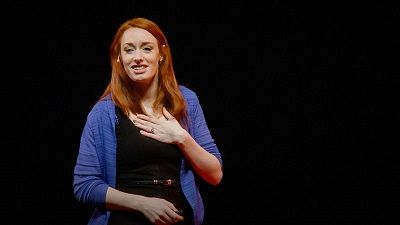
#2 - Hannah Fry: The mathematics of love
Season 2015 - Episode 26 - Aired 2/13/2015
Finding the right mate is no cakewalk — but is it even mathematically likely? In a charming talk, mathematician Hannah Fry shows patterns in how we look for love, and gives her top three tips (verified by math!) for finding that special someone.
Watch Now:Amazon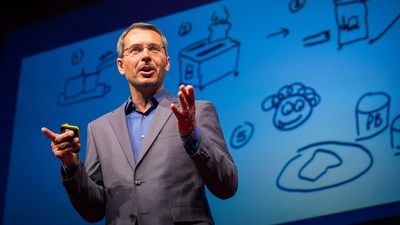
#3 - Tom Wujec: Got a wicked problem? First, tell me how you make toast
Season 2015 - Episode 21 - Aired 2/5/2015
Making toast doesn’t sound very complicated — until someone asks you to draw the process, step by step. Tom Wujec loves asking people and teams to draw how they make toast, because the process reveals unexpected truths about how we can solve our biggest, most complicated problems at work. Learn how to run this exercise yourself, and hear Wujec’s surprising insights from watching thousands of people draw toast.
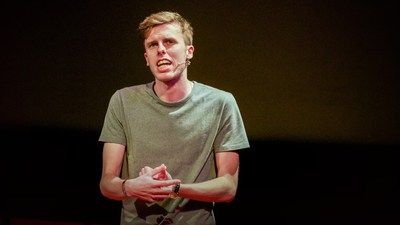
#4 - Harry Baker: A love poem for lonely prime numbers
Season 2015 - Episode 39 - Aired 3/4/2015
Performance poet (and math student) Harry Baker spins a love poem about his favorite kind of numbers — the lonely, love-lorn prime. Stay on for two more lively, inspiring poems from this charming performer.
#5 - Alan Eustace: I leapt from the stratosphere. Here's how I did it
Season 2015 - Episode 151 - Aired 9/4/2015
On October 24, 2014, Alan Eustace donned a custom-built, 235-pound spacesuit, attached himself to a weather balloon, and rose above 135,000 feet, from which point he dove to Earth, breaking both the sound barrier and previous records for high-altitude jumps. Hear his story of how -- and why.
#6 - Andreas Ekström: The moral bias behind your search results
Season 2015 - Episode 194 - Aired 11/10/2015
Search engines have become our most trusted sources of information and arbiters of truth. But can we ever get an unbiased search result? Swedish author and journalist Andreas Ekström argues that such a thing is a philosophical impossibility. In this thoughtful talk, he calls on us to strengthen the bonds between technology and the humanities, and he reminds us that behind every algorithm is a set of personal beliefs that no code can ever completely eradicate.
#7 - Carl Safina: What are animals thinking and feeling?
Season 2015 - Episode 200 - Aired 11/19/2015
What's going on inside the brains of animals? Can we know what, or if, they're thinking and feeling? Carl Safina thinks we can. Using discoveries and anecdotes that span ecology, biology and behavioral science, he weaves together stories of whales, wolves, elephants and albatrosses to argue that just as we think, feel, use tools and express emotions, so too do the other creatures – and minds – that share the Earth with us.
#8 - Daniel Levitin: How to stay calm when you know you'll be stressed
Season 2015 - Episode 187 - Aired 10/30/2015
You're not at your best when you're stressed. In fact, your brain has evolved over millennia to release cortisol in stressful situations, inhibiting rational, logical thinking but potentially helping you survive, say, being attacked by a lion. Neuroscientist Daniel Levitin thinks there's a way to avoid making critical mistakes in stressful situations, when your thinking becomes clouded -- the pre-mortem. "We all are going to fail now and then," he says. "The idea is to think ahead to what those failures might be."
#9 - Genevieve von Petzinger: Why are these 32 symbols found in ancient caves all over Europe?
Season 2015 - Episode 201 - Aired 11/20/2015
Written language, the hallmark of human civilization, didn't just suddenly appear one day. Thousands of years before the first fully developed writing systems, our ancestors scrawled geometric signs across the walls of the caves they sheltered in. Paleoanthropologist, rock art researcher and TED Senior Fellow Genevieve von Petzinger has studied and codified these ancient markings in caves across Europe. The uniformity of her findings suggest that graphic communication, and the ability to preserve and transmit messages beyond a single moment in time, may be much older than we think.
#10 - Elizabeth Nyamayaro: An invitation to men who want a better world for women
Season 2015 - Episode 148 - Aired 9/1/2015
Around the world, women still struggle for equality in basic matters like access to education, equal pay and the right to vote. But how to enlist everyone, men and women, as allies for change? Meet Elizabeth Nyamayaro, head of UN Women’s HeForShe initiative, which has created more than 2.4 billion social media conversations about a more equal world. She invites us all to join in as allies in our shared humanity.
#11 - Matt Kenyon: A secret memorial for civilian casualties
Season 2015 - Episode 136 - Aired 8/13/2015
In the fog of war, civilian casualties often go uncounted. Artist Matt Kenyon, whose recent work memorialized the names and stories of US soldiers killed in the Iraq war, decided he should create a companion monument, to the Iraqi civilians caught in the war's crossfire. Learn how he built a secret monument to place these names in the official record.
#12 - Wendy Freedman: This new telescope might show us the beginning of the universe
Season 2015 - Episode 147 - Aired 8/31/2015
When and how did the universe begin? A global group of astronomers wants to answer that question by peering as far back in time as a large new telescope will let us see. Wendy Freedman headed the creation of the Giant Magellan Telescope, under construction in South America; at TEDGlobal in Rio, she shares a bold vision of the discoveries about our universe that the GMT could make possible.
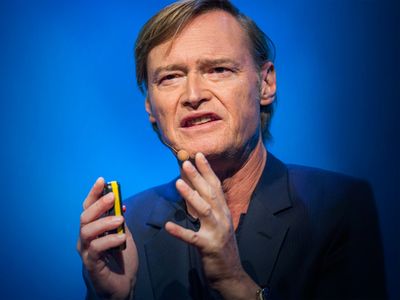
#13 - Yves Morieux: How too many rules at work keep you from getting things done
Season 2015 - Episode 146 - Aired 8/28/2015
Modern work -- from waiting tables to crunching numbers to designing products -- is about solving brand-new problems every day, flexibly and collaboratively. But as Yves Morieux shows in this insightful talk, too often, an overload of rules, processes and metrics keeps us from doing our best work together. Meet the new frontier of productivity: cooperation.
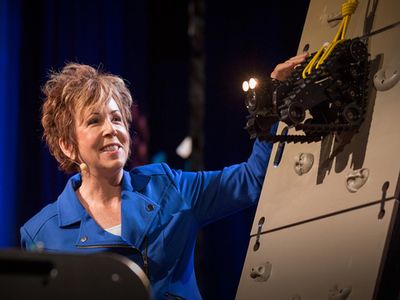
#14 - Robin Murphy: These robots come to the rescue after a disaster
Season 2015 - Episode 145 - Aired 8/27/2015
When disaster strikes, who's first on the scene? More and more, it’s a robot. In her lab, Robin Murphy builds robots that fly, tunnel, swim and crawl through disaster scenes, helping firefighters and rescue workers save more lives safely -- and help communities return to normal up to three years faster.
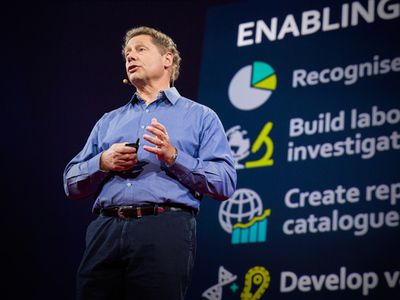
#15 - Seth Berkley: The troubling reason why vaccines are made too late ... if they’re made at all
Season 2015 - Episode 144 - Aired 8/25/2015
It seems like we wait for a disastrous disease outbreak before we get serious about making a vaccine for it. Seth Berkley lays out the market realities and unbalanced risks behind why we aren't making vaccines for the world's biggest diseases.
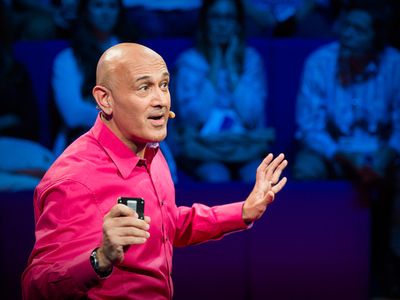
#16 - Jim Al-Khalili: How quantum biology might explain life’s biggest questions
Season 2015 - Episode 143 - Aired 8/24/2015
How does a robin know to fly south? The answer might be weirder than you think: Quantum physics may be involved. Jim Al-Khalili rounds up the extremely new, extremely strange world of quantum biology, where something Einstein once called “spooky action at a distance” helps birds navigate, and quantum effects might explain the origin of life itself.
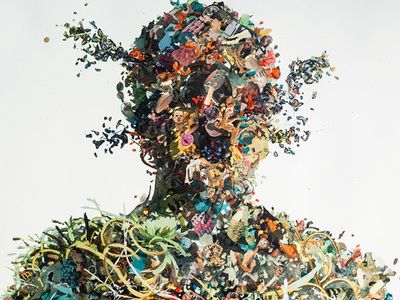
#17 - Dustin Yellin: A journey through the mind of an artist
Season 2015 - Episode 142 - Aired 9/15/2015
Dustin Yellin makes mesmerizing artwork that tells complex, myth-inspired stories. How did he develop his style? In this disarming talk, he shares the journey of an artist -- starting from age 8 -- and his idiosyncratic way of thinking and seeing. Follow the path that leads him up to his latest major work (or two).
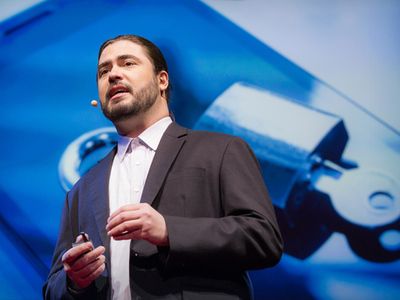
#18 - Christopher Soghoian: How to Avoid Surveillance...With Your Phone
Season 2015 - Episode 141 - Aired 9/14/2015
Who is listening in on your phone calls? On a landline, it could be anyone, says privacy activist Christopher Soghoian, because surveillance backdoors are built into the phone system by default, to allow governments to listen in. But then again, so could a foreign intelligence service ... or a criminal. Which is why, says Soghoian, some tech companies are resisting governments' call to build the same backdoors into mobile phones and new messaging systems. From this TED Fellow, learn how some tech companies are working to keep your calls and messages private.
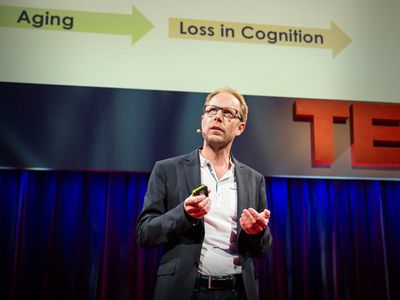
#19 - Tony Wyss-Coray: How young blood might help reverse aging. Yes, really
Season 2015 - Episode 140 - Aired 8/19/2015
Tony Wyss-Coray studies the impact of aging on the human body and brain. In this eye-opening talk, he shares new research from his Stanford lab and other teams which shows that a solution for some of the less great aspects of old age might actually lie within us all.
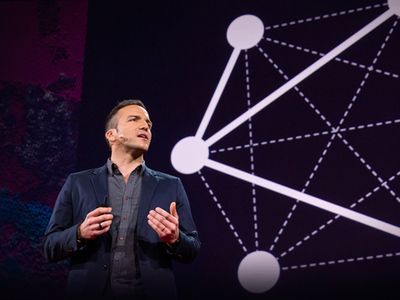
#20 - Manuel Lima: A visual history of human knowledge
Season 2015 - Episode 139 - Aired 8/18/2015
How does knowledge grow? Sometimes it begins with one insight and grows into many branches; other times it grows as a complex and interconnected network. Infographics expert Manuel Lima explores the thousand-year history of mapping data -- from languages to dynasties -- using trees and networks of information. It's a fascinating history of visualizations, and a look into humanity's urge to map what we know.
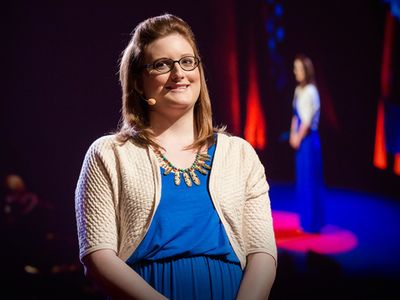
#21 - Alix Generous: How I learned to communicate my inner life with Asperger's
Season 2015 - Episode 138 - Aired 8/17/2015
Alix Generous is a young woman with a million and one ideas -- she's done award-winning science, helped develop new technology and tells a darn good joke (you'll see). She has Asperger's, a form of autistic spectrum disorder that can impair the basic social skills required for communication, and she's worked hard for years to learn how to share her thoughts with the world. In this funny, personal talk, she shares her story -- and her vision for tools to help more people communicate their big ideas.
#22 - Patience Mthunzi: Could we cure HIV with lasers?
Season 2015 - Episode 137 - Aired 8/14/2015
Swallowing pills to get medication is a quick, painless and often not entirely effective way of treating disease. A potentially better way? Lasers. In this passionate talk, TED Fellow Patience Mthunzi explains her idea to use lasers to deliver drugs directly to cells infected with HIV. It's early days yet, but could a cure be on the horizon?
#23 - Mary Robinson: Why climate change is a threat to human rights
Season 2015 - Episode 162 - Aired 9/23/2015
Climate change is unfair. While rich countries can fight against rising oceans and dying farm fields, poor people around the world are already having their lives upended — and their human rights threatened — by killer storms, starvation and the loss of their own lands. Mary Robinson asks us to join the movement for worldwide climate justice.
#24 - Jamie Bartlett: How the mysterious dark net is going mainstream
Season 2015 - Episode 149 - Aired 9/2/2015
There’s a parallel Internet you may not have run across yet -- accessed by a special browser and home to a freewheeling collection of sites for everything from anonymous activism to illicit activities. Jamie Bartlett reports from the dark net.
#25 - Jim Simons: A rare interview with the mathematician who cracked Wall Street
Season 2015 - Episode 150 - Aired 9/3/2015
Jim Simons was a mathematician and cryptographer who realized: the complex math he used to break codes could help explain patterns in the world of finance. Billions later, he’s working to support the next generation of math teachers and scholars. TED’s Chris Anderson sits down with Simons to talk about his extraordinary life in numbers.